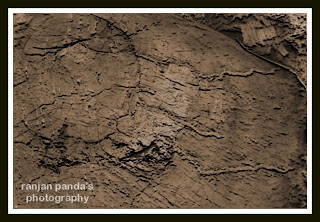Q&A
‘Government has to change its mentality’
With considerable experience at the grassroots and at macro levels, Ranjan Panda droughtproofs perennially droughtprone areas in Orissa. Felicitated by WaterAID, amongst other organisations, he spoke to Deep K Datta-Ray:
What is your specific area of environmentalism and why?
It’s water harvesting. It’s a myth India doesn’t receive a good monsoon. The problem is wastage, exacerbated by climate change. People have less time to collect rainwater for farming and personal use. I try to change this, put in place schemes villagers can use to harvest rainwater. As a sociologist, i went to remote areas to study local knowledge and stayed to help preserve it, especially in managing water because of the richness of their knowledge. Ineffective water harvesting means people can’t grow crops, land is deserted,there is migration to urban areas and that generates a whole slew of problems at the abandoned village where soil deteriorates causing environmental problems. And in the city, look how destitute people live in slums. None of this need happen.
Can people quitting the land be attributed to water problems?
In Orissa, water degradation started at the end of colonial rule and was aggravated post-Independence by two huge mistakes. First, massive state sector water harvesting. This meant local knowledge was lost as government created a dependency syndrome. People stopped doing something they did naturally. Second, the state did a bad job. Central planning meant local practices were ignored. One example is the Mahabandha Yojana. Recently, massive water tanks were constructed in differing terrains. But one size does not fit all areas. Big tanks have problems, like silting, which cannot be managed locally. As a result much water is wasted and this is what i’m trying to stop.
How was water managed pre-Independence?
Villagers took care of matters. They knew how water flowed and constructed small structures to direct and collect rainwater. Locals knew the lay of the land and utilised the knowledge. They built ecological and economic marvels – Katas, Mudas and others – throughout western Orissa which are now forgotten. Records show this was agriculturally one of the most prosperous regions just a century ago. Small was beautiful. People maintained these facilities on their own using knowledge built up over centuries. But now, a region which gave the wonder of rice to the world is drought-ridden. And it’s because of gross neglect of these structures and systems.
How do you revitalise this ancient knowledge to solve today’s problems?
We build on this knowledge and use modern science to excavate and renovate centuries-old structures. We retrieve knowledge about the local terrain and water movement and adapt it to newer changes. We also use modern biology to plan vegetation that prevents soil erosion. We encourage farmers to return to organic farming because the use of hybrids and pesticides is very, very water intensive. The land was not designed to support such harvesting. We have been trying to promote simple, low-cost interventions and the onus is on locals to plan, implement and maintain.
Are you suggesting that there have to be policy-level changes?
Very much so. The government has to change its mentality from looking at water harvesting as structural intervention to integrated ecology. That makes possible plans for systemic intervention, where all policies tie up with each other. Your readers will be astounded to hear that the ministry of agriculture decides on how much paddy is to be grown in an area without consulting the ministry of water resources on how much water is required! We need departmental convergence in planning and managing our present and future.










